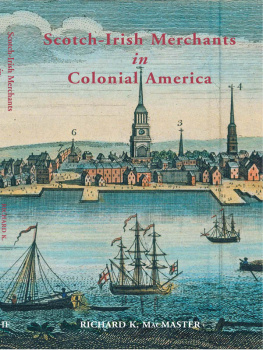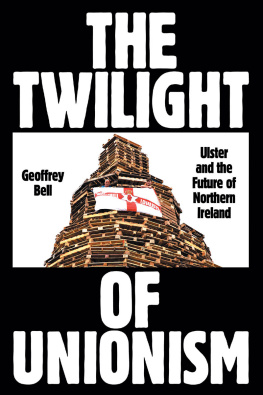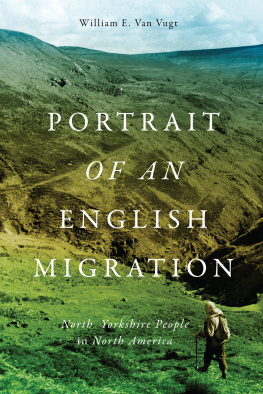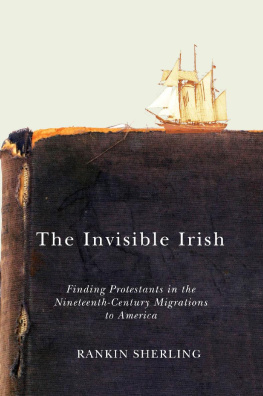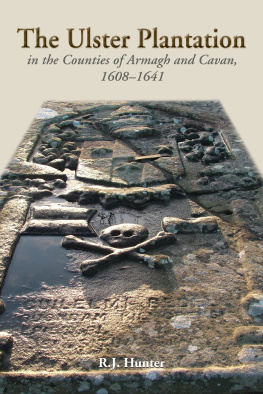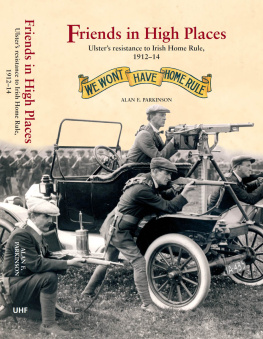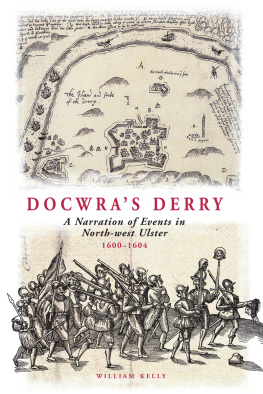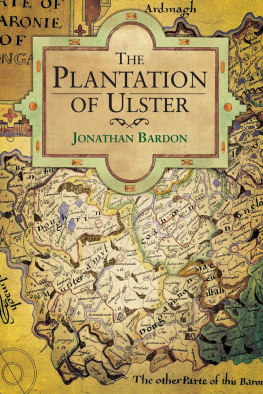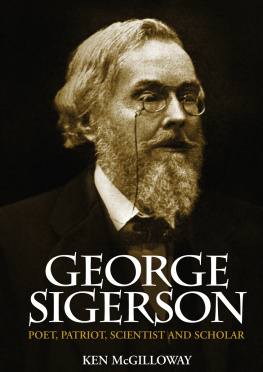Richard K. MacMaster is co-editor of The Journal of Scotch-Irish Studies and co-director of The Center for Scotch-Irish Studies. He earned a B.A. and M.A. in history at Fordham University and a Ph.D. in American history at Georgetown University.
His research interests have been in eighteenth-century America: Virginia, Mennonites and other German settlers, and the Scotch-Irish. His books include The Five George Masons: Planters and Patriots of Maryland and Virginia (Charlottesville: University Press of Virginia, 1975); Conscience in Crisis: Mennonites and Other Peace Churches in America 17391789 (Scottdale, PA: Herald Press, 1979); and Land, Piety, Peoplehood: The Establishment of Mennonite Communities in America 16831790 (Scottdale PA: Herald Press, 1985).
In 1981, while teaching at James Madison University, he began The Shenandoah Valley Historical Institute to encourage study of the different ethnic and religious groups on the eighteenth-century frontier and directed an NEH-funded research project with Robert D. Mitchell, Warren Hofstra, and Klaus Wust on Cultural Pluralism in the Shenandoah Valley in 19845. He also has taught at Western Carolina University, Bluffton College and Elizabethtown College and, in retirement, has been affiliated with the History Department, University of Florida since 2002.
Scotch-Irish Merchants
in
Colonial America
RICHARD K. M AC MASTER

For Eve
We clamb the hill thegither.
Ulster Historical Foundation is pleased to acknowledge support for this publication from The Scotch-Irish Society of U.S.A.
COVER ILLUSTRATION:
The East Prospect of the City of Philadelphia in the Province of Pennsylvania after a view made by George Heap, by direction of Nicholas Scull, 1754. Reproduced courtesy of the American Philosophical Society, Philadephia.
First published 2009 by Ulster Historical Foundation
www.ancestryireland.com
www.booksireland.org.uk
Except as otherwise permitted under the Copyright, Designs and Patents Act 1988, this publication may only be reproduced, stored or transmitted in any form or by any means with the prior permission in writing of the publisher or, in the case of reprographic reproduction, in accordance with the terms of a licence issued by The Copyright Licensing Agency. Enquiries concerning reproduction outside those terms should be sent to the publisher.
Richard K. MacMaster
ISBN: 978-1-903688-78-6
ePub ISBN: 978-1-908448-12-5
Kindle ISBN: 978-1-908448-11-8
Printed by Athenaeum Press
Design and typesetting by FPM Publishing
Abbreviations
CCCH | Cumberland County Court House (Carlisle, Pennsylvania) |
HSP | Historical Society of Pennsylvania (Philadelphia, Pennsylvania) |
HSYC | Historical Society of York County (York, Pennsylvania) |
LC | Library of Congress |
LCCH | Lancaster County Court House (Lancaster, Pennsylvania) |
LCHS | Lancaster County Historical Society (Lancaster, Pennsylvania) |
PHS | Presbyterian Historical Society (Philadelphia, Pennsylvania) |
PMHB | Pennsylvania Magazine of History and Biography |
PRONI | Public Record Office of Northern Ireland |
PSA | Pennsylvania State Archives (Harrisburg, Pennsylvania) |
Acknowledgements
I FIRST THOUGHT OF WRITING THIS BOOK fifteen years ago, but it would have been a very different book. During an academic year spent in Belfast in 19956 with support from a British Council Research Fellowship, I was researching eighteenth-century emigration from Ulster to the North American Colonies. My aim was to take R. J. Dicksons classic study Ulster Emigration to Colonial America 17181775 through the next generation before the Napoleonic Wars interrupted the pattern. The men who went out to America in the 1780s to represent firms in Belfast and Derry caught my attention more and more and especially the Scotch-Irish merchants who linked Belfast with Baltimore. As I began to observe the complexity of their business connections, it was also evident that these transatlantic networks were functioning from the earliest days of emigration and that the passenger trade could not be separated from Ulsters flaxseed imports and linen exports. To tell that story I temporarily set aside my notes and photocopied documents from the years after the American Revolution and plunged into the business world of the earlier eighteenth century.
The Pennsylvania Historical and Museum Commission made it possible for me to explore the commercial links between Philadelphia Merchants, Backcountry Shopkeepers and Town-Building Fever in the Lower Susquehanna Valley, 17551775 as a scholar in residence at the Pennsylvania State Archives.
Several chapters had an initial airing at academic conferences, including the Ulster-American Heritage Symposium, the Scotch-Irish Identity Symposium, the Irish Atlantic Conference at the College of Charleston and conferences of the Pennsylvania Historical Association and the British Group for Early American History, where helpful comments led to extensive rethinking and rewriting.
While the final version reflects the authors interpretation of the sources and he alone must be held accountable for omissions and tangential rabbit trails, the gathering of historical information is inevitably a corporate enterprise. I am indebted to a great many friends and colleagues who freely shared their knowledge, notably Jean Agnew, Bill Crawford, John McCabe, Robert McClure, and Brian Trainor who introduced me to unsuspected sources in Belfast and Dublin. William Roulston has been an outstanding editor as well. A common enterprise in helping the Ulster-American Folk Park in Omagh, Co. Tyrone tell the emigration story brought me the friendship and valuable insights of John Gilmour, Denis Macneice, Phil Mowat, Graeme Kirkham, Marianne Wokeck, Michael Montgomery, Anita Puckett, Patrick Griffin, Katharine Brown, Ken Keller, Warren Hofstra, and Kerby Miller who each contributed some of their insight into eighteenth-century America to this book. I am also grateful to Judith Ridner, Michelle Mormul, David Mitchell and Thomas Truxes for helpful suggestions. June Lloyd, then librarian of the Historical Society of York County, Pennsylvania directed me to the James Fullton papers in her custody. Tom Ryan, Ginger Shelley, Heather Tennies, and the other staff at the Lancaster County Historical Society made my visits there both pleasant and profitable, as did the staff of the Pennsylvania State Archives, the Historical Society of Pennsylvania, and the Presbyterian Historical Society.
I would be remiss not to include the many members of the library staff at the University of Florida as well. Research would be impossible without the help of interlibrary loan librarians. I am particularly indebted to Janice Kaylor and the University of Florida interlibrary loan staff who never failed to find the most obscure title I requested.
RICHARD K. M AC MASTER
Introduction
I N THE COURSE OF THE EIGHTEENTH CENTURY migration from Europe and Africa shaped the emerging consciousness and culture of the American Colonies. Whether free, bond servant, or slave, migrants brought skills and folkways from their motherlands, contributing to the agricultural and commercial development as well as to the peopling of North America. Emigrants from Ulster, the northern province of Ireland, did all of this and more. Ulster exported an economy.
Next page
